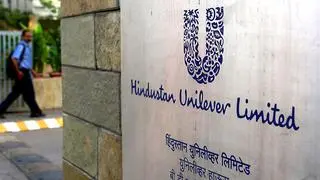Tata Chemicals has exited from its troubled fertiliser business with the sale of its phosphatic fertilisers business to IRC Agrochemicals, a subsidiary of Indorama, for ₹375 crore.
The transaction will involve transfer of its Haldia plant with production capacity of about 1.2 million tonnes per annum, working capital and product brands but excluding outstanding subsidy amounts, it added.
The plant produces DAP (Di Ammonium Phosphate) and NPK (Nitrogen, Phosphorous, and Potash) fertilisers, sulphuric acid, phosphoric acid, sodium tripolyphosphate crop nutrition.
Production of phosphatic fertiliser at Haldia plant was suspended for the entire June quarter due to lower sales volume and higher input cost.
The delay in subsidy receivable from the government is one of the reasons for Tata Chemicals to quit fertiliser business. As of June quarter, the subsidy receivable by Tata Chemicals from the government is about ₹1,101 crore.
Last August, Tata Chemicals sold its urea business at Babrala in Uttar Pradesh to the Indian unit of Norway-based Yara International for ₹2,670 crore.
R Mukundan, Managing Director, Tata Chemicals, said the company continues to move forward on its strategy to focus on speciality chemicals and consumer food business, while maintaining leadership in inorganic chemicals business, he added.
In September, Tata Chemicals entered into talks with Indorama Holdings BV, Netherlands (subsidiary of Indorama Corporation, Singapore) for selling its phosphatic fertiliser business at Haldia along with fertiliser trading business for ₹400-500 crore.
On Monday, the board of Tata Chemicals accepted the recommendations made by committee of directors for the sale of phosphatic fertilisers business and fertiliser trading business on a going concern basis to IRC Agrochemicals subject to regulatory approvals. The speciality chemical business of Tata Chemicals includes sodium bicarbonate business, agrochemicals through its subsidiary,








Comments
Comments have to be in English, and in full sentences. They cannot be abusive or personal. Please abide by our community guidelines for posting your comments.
We have migrated to a new commenting platform. If you are already a registered user of TheHindu Businessline and logged in, you may continue to engage with our articles. If you do not have an account please register and login to post comments. Users can access their older comments by logging into their accounts on Vuukle.